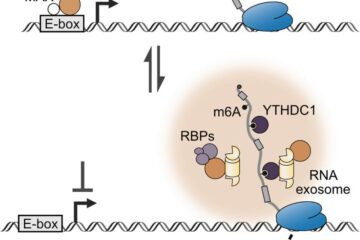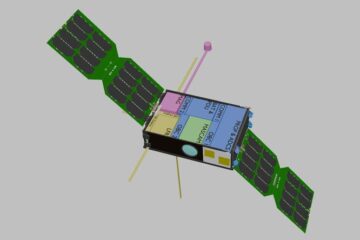Nucleic Fluorescent Probes for the Specific Detection of Single Base Alterations

</a><strong>Technology</strong><br>The present invention relates to forced intercalation probes (FIT-probes) based on nucleoside analogues with fluorescent artificial nucleobases. Thereby the nucleoside analogue is incorporated into DNA or RNA in the place of a single native base.<br>As such, FIT-probes may be employed in a large number of applications including genetic diagnostics, disease predisposition, pharmacogenetics and pathogen detection. The FIT-probes exhibit a simplistic mode of action and are able to detect single base alteration. They further possess few design constraints and show melting peak data which can be interpreted easily. The assay has been demonstrated to function efficiently directly from samples without prior purification of nucleic acids making the probe technology suitable for point-of-care diagnostics.</p>
<p><strong>Benefits</strong> <ul> <li>More specific and sensitive than common PNA probes</li> <li>First time manufacturing of DNA probes</li> <li>Abdication of linker enhances dye properties</li> <li>Enhanced sensitivity as probes differ between correct and incorrect hybridization</li> <li>Application at room temperature</li> <li>Wide range of application</li> <li>DNA probes allow detection in living cells by Fluorescence in situ hybridization (FISH)</li> <li>Enzyme activity is not influenced</li> <li>Inexpensive production</li> </ul> <p><strong>IP Rights</strong><br> EP Patent Application filed 09/2009<br> US Application filed 03/2012 <br> <br> <strong>Patent Owner</strong><br> Humboldt-Universität zu Berlin<br> </p>
Weitere Informationen: PDF
ipal GmbH
Tel.: +49 (0)30/2125-4820
Ansprechpartner
Dr. Dirk Dantz
Media Contact
Alle Nachrichten aus der Kategorie: Technologieangebote
Neueste Beiträge

Forschende enthüllen neue Funktion von Onkoproteinen
Forschende der Uni Würzburg haben herausgefunden: Das Onkoprotein MYCN lässt Krebszellen nicht nur stärker wachsen, sondern macht sie auch resistenter gegen Medikamente. Für die Entwicklung neuer Therapien ist das ein…

Mit Kleinsatelliten den Asteroiden Apophis erforschen
In fünf Jahren fliegt ein größerer Asteroid sehr nah an der Erde vorbei – eine einmalige Chance, ihn zu erforschen. An der Uni Würzburg werden Konzepte für eine nationale Kleinsatellitenmission…

Zellskelett-Gene regulieren Vernetzung im Säugerhirn
Marburger Forschungsteam beleuchtet, wie Nervenzellen Netzwerke bilden. Ein Molekülpaar zu trennen, hat Auswirkungen auf das Networking im Hirn: So lässt sich zusammenfassen, was eine Marburger Forschungsgruppe jetzt über die Vernetzung…

















